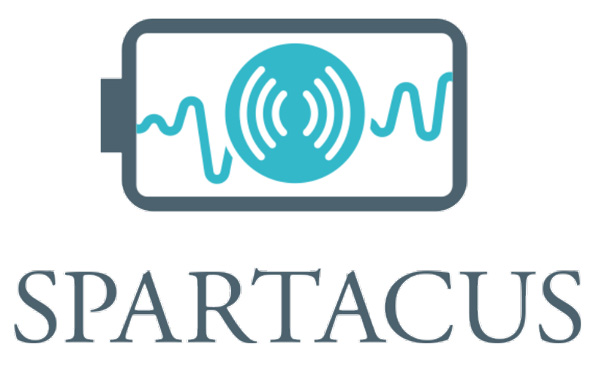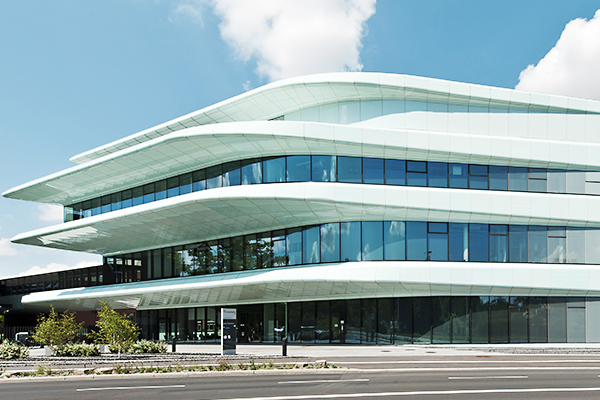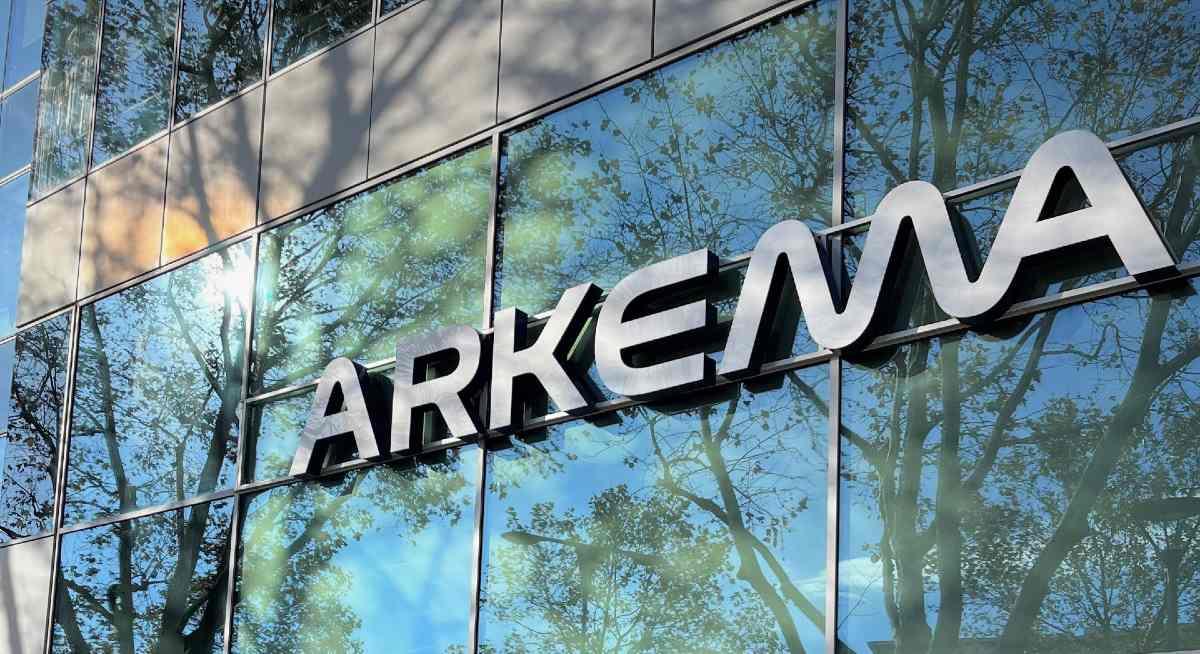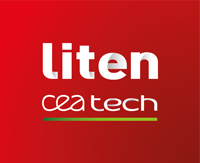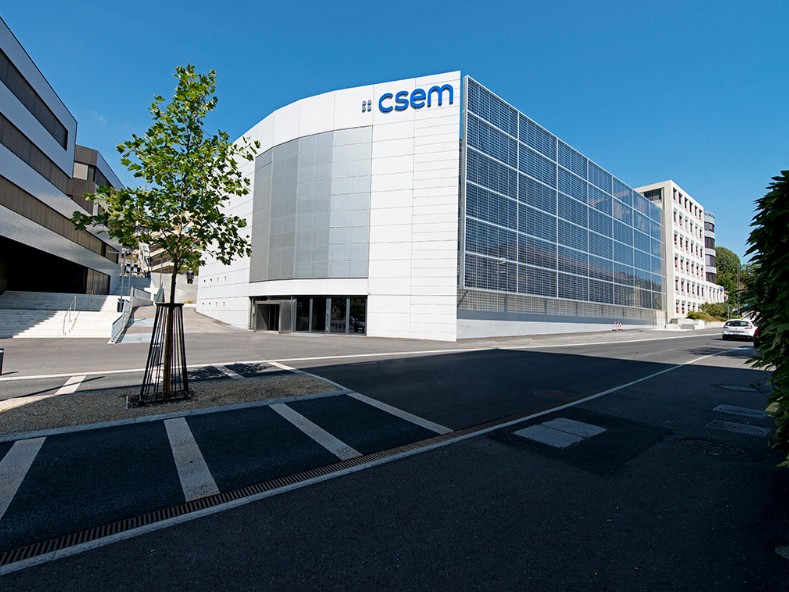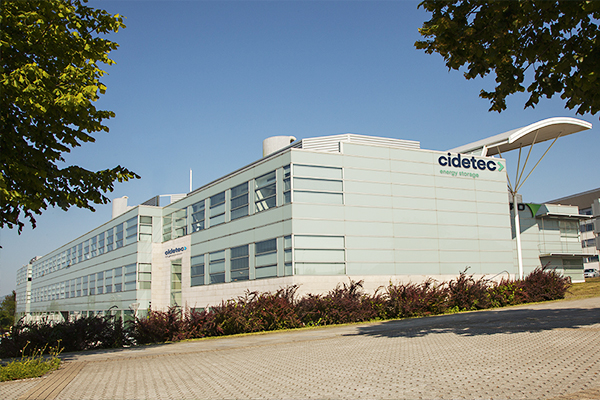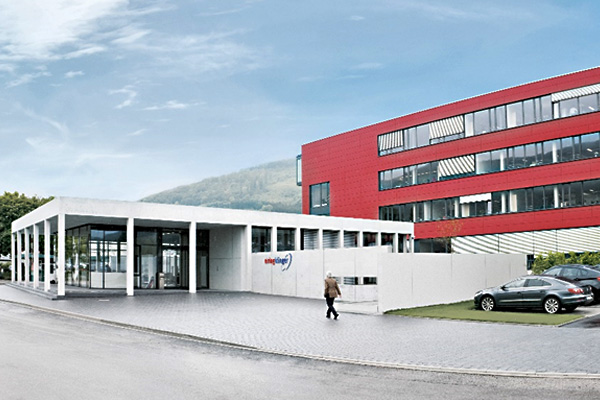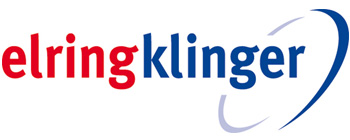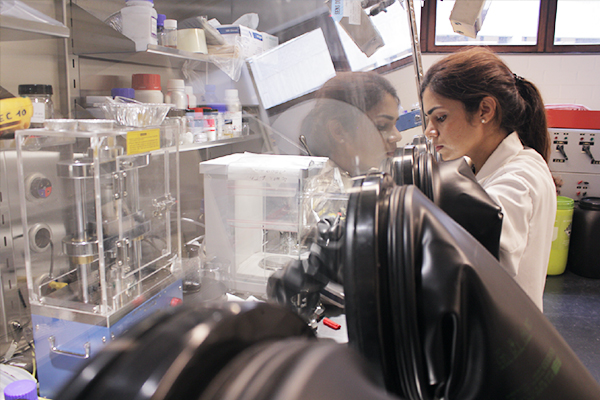The SPARTACUS consortium is composed of four research organizations, one university and two industrials covering all relevant expertise needed, from materials knowledge to battery pilot production, sensor development with different approaches and impedance analysis to the implementation of management systems. Battery cyclers will be used in order to demonstrate the improved performance of batteries.
FRAUNHOFER ISC in profile
The Fraunhofer Institute for Silicate Research ISC is one of the leading german R&D centers for material-based research and development in the fields of energy, environment and health. With a permanent staff of about 380 scientists and technicians the Institute works to develop innovative materials and technologies for sustainable products and make essential contributions to solving the major global issues and challenges of the future.
Within the SPARTACUS project, Fraunhofer ISC‘s focal areas Energy/Battery Research and Adaptive Systems/Sensing combine vast experience in both, battery material synthesis and processing, as well as profound know-how in sensoric systems, data processing and interpretation of sensor signals.
ARKEMA in profile
Building on its unique set of expertise in materials science, Arkema offers a portfolio of first-class technologies to address ever-growing demand for new and sustainable materials. With the ambition to become in 2024 a pure player in Specialty Materials, the Group is structured into 3 complementary, resilient and highly innovative segments dedicated to Specialty Materials -Adhesive solutions, Advanced Materials, and Coating Solutions- accounting for some 80% of Group sales, and a well-positioned and competitive Intermediates segment. Arkema offers cutting-edge technological solutions to meet the challenges of, among other things, new energies, access to water, recycling, urbanization and mobility, and fosters a permanent dialogue with all its stakeholders. The Group reported sales of €8.7 billion in 2019, and operates in some 55 countries with 20,500 employees worldwide.
CEA in profile
The French Alternative Energies and Atomic Energy Commission (CEA) is a key player in research, development and innovation for:
- Defense and security
- Nuclear and renewable energies
- Technological research for industry
- Fundamental research in the physical sciences and life sciences.
Drawing on its expertise, the CEA participates in collaborative projects with a large number of academic and industrial partners.
CEA-LITEN is working on printed technologies for more than 10 years with a recent focus on structural electronics, which consists in including functionalities in objects. The team operates the French printing platform called “PICTIC” which is devoted to printing process development for organic devices (antennas, sensors and actuators), system integration, device characterization and reliability.
CSEM
CSEM (Centre Suisse d’Electronique et de Microtechnique) is a private, not-for-profit Swiss research and technology organisation. It develops innovative technology platforms through five strategic programs: microsystems, ultra-low-power integrated systems, surface engineering, systems and photovoltaics. The annual turnover for 2017 was 96.3 Mio SFr (~ 83 Mio €). CSEM staff comprises some 450 people.
Since 2013 CSEM is home to the Swiss national competence center for photovoltaics, PV-Center. Within this center, a team devoted to battery technology, works on the development of:
• battery models able to track the operation and the degradation of such devices,
• state estimators based on such models,
• battery management electronics that exploit the resulting information to improve the performance of battery systems.
CSEM has also wide experience in ultra-low power analogue, including various aspects related to the wireless radio communications.
Our task:
Within SPARTACUS, CSEM’s main objective is to build the next battery management system able to include novel sensing capabilities coming from the sensorized cell and ORP-EIS (Odd Random Phase Electrochemical Impedance Spectroscopy). As well as developing a fully operational 24V battery module integrating such sensors and CMSs
CIDETEC in profile
CIDETEC is a private organization for applied research founded in 1997 that seeks to contribute value to companies by harnessing, generating and transferring technological knowledge. Located in the Donostia-San Sebastián site of Gipuzkoa’s Scientific and Technological Park, CIDETEC is comprised of three international technological reference institutes in energy storage, surface engineering and nanomedicine.
The CIDETEC institute for Energy Storage specialises in creating new battery technology and facilitating its transfer to industry. The institute has the capacity to develop complete products and processes and offers material validation, pilot manufacture, pack engineering and battery testing services.
ElringKlinger in profile
ElringKlinger is a major Tier 1 supplier to the automotive industry with an annual turnover of ca. € 1.7 bn and around 10,000 employees in 45 locations around the globe. As an independent and globally positioned supplier, the ElringKlinger Group is a powerful and reliable partner to the automotive industry.
Be it car or commercial vehicle, hybrid technology, or electric motor – we offer innovative solutions for all drive types. Developing cutting-edge battery and fuel cell technology as well as electric drive units, ElringKlinger is among the frontrunners when it came to position itself as a specialist in the field of e-mobility. The company has been developing lithium-ion battery related products since early 2000 and there is a strong focus on design for cost-effective mass production.
VUB-mobi in profile
MOBI is the research leader in electromobility, socio-economic evaluations for sustainable mobility and logistics. With our multidisciplinary team, we support and study the transition towards a more sustainable urban mobility and logistics system with the goal to achieve concrete and long-lasting positive socio-economic and environmental impacts. Our strength resides from our unique combination of environmental, socio-economic and technical competences, together with tools developed for the sustainable transport sector.
Our research focuses on five domains: electric & autonomous vehicle technology, battery innovation, sustainable logistics, urban mobility and sustainable energy communities.

